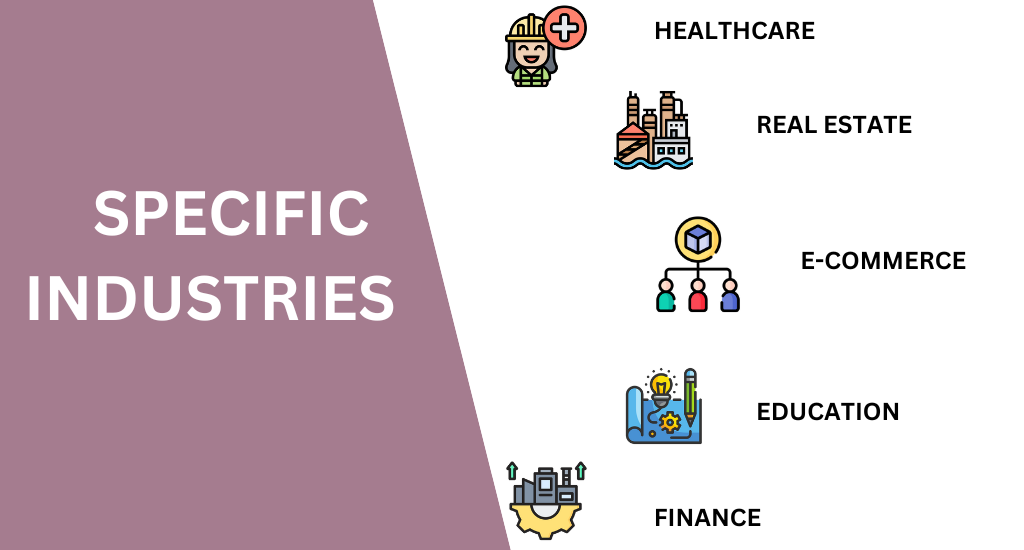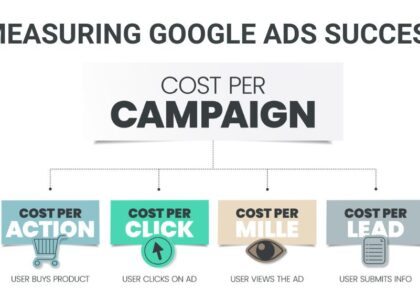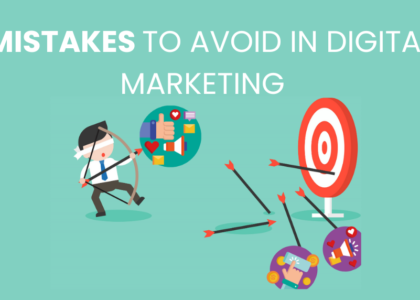In today’s fast-paced digital landscape, industries are more dynamic than ever, and marketing strategies need to be tailored to meet specific industry needs. Digital marketing, with its vast array of tools and techniques, offers industry-specific solutions that can drive growth, engage target audiences, and ultimately boost a company’s bottom line. In this blog, we’ll delve into the digital marketing strategies tailored for specific industries, exploring how a digital marketing agency can play a crucial role in this process.
1. Understanding Industry-Specific Digital Marketing Needs
Different industries have unique challenges and opportunities when it comes to digital marketing. A one-size-fits-all approach is rarely effective. Instead, a digital marketing agency must develop tailored strategies that address the specific needs and goals of each industry. Understanding the target audience, industry trends, and competitive landscape is key to crafting effective digital marketing campaigns.
1. Healthcare Industry
The healthcare industry demands a high level of trust and authority. Digital marketing strategies for healthcare must prioritize compliance with regulations like HIPAA, create content that educates and informs, and build trust through patient testimonials and case studies. Despite these regulations, digital marketing offers a multitude of avenues to connect with patients and streamline operations.
Search Engine Optimization (SEO):
Incorporate relevant keywords related to healthcare services, such as “pediatrician near me” or “cardiology clinic.” This helps improve the site’s visibility on search engines and attracts organic traffic.
Content:
Provide valuable information such as blog posts on health tips, FAQs, and detailed descriptions of services offered. This not only helps with SEO but also builds trust with potential patients.
Social Media Marketing:
Use platforms like Facebook, LinkedIn, and Instagram to share health tips, success stories, and engage with the community. Pay attention to privacy concerns and maintain a professional tone.
2. Real Estate Industry
In real estate, digital marketing strategies need to showcase properties effectively and target potential buyers or renters. The market is diverse, with different segments including residential, commercial, and industrial real estate. Each segment has its own set of needs and challenges, which should be addressed in your marketing approach.
Search Engine Optimization (SEO):
Optimize property listings with relevant keywords, including location-based terms to attract local buyers. Focus on both on-page SEO (title tags, meta descriptions, and header tags) and off-page SEO (backlinks and local citations).
Social Media Advertising:
Use visually appealing ads on platforms like Facebook, Instagram, and Pinterest to showcase properties and attract potential buyers. Use ad extensions to provide additional information such as phone numbers, site links, and location details.
Virtual Tours and Video Marketing:
Leverage video content and virtual tours to give potential clients a comprehensive view of properties. Produce property walkthroughs, client testimonials, and educational videos about the real estate process.
3. E-commerce Industry
E-commerce businesses thrive on online visibility and conversion optimization. Strategies need to focus on driving traffic and converting visitors into customers. E-commerce businesses operate in a highly competitive environment with low barriers to entry, which means standing out requires a well-crafted digital marketing approach.
Pay-Per-Click (PPC) Advertising:
PPC advertising allows e-commerce businesses to target specific customer segments and drive immediate traffic to their online stores. Utilize PPC campaigns on Google Ads and social media platforms to target specific keywords and demographics.
Email Marketing:
Email marketing remains one of the most effective channels for e-commerce businesses. Implement personalized email campaigns to promote products, offer discounts, and retarget abandoned carts.
Content Marketing:
They create engaging blog posts, product reviews, and how-to guides to attract and inform potential customers. Use high-quality images, videos, and user-generated content to build trust.
4. Education Sector
The education sector benefits from digital marketing strategies that highlight the value and uniqueness of educational offerings. As institutions and educational service providers strive to attract and engage students, parents, and educators, leveraging targeted digital marketing strategies is crucial. a well-rounded digital marketing strategy is essential for attracting and engaging students, parents, and educators.
Content Marketing:
Content marketing is essential for establishing authority and engaging your target audience. Develop informative content that addresses common questions and concerns of prospective students and parents. Include success stories and testimonials.
SEO:
SEO is crucial for increasing the visibility of educational institutions online. Optimize website content with relevant keywords related to courses, programs, and institutions to attract organic traffic.
Social Media:
Social media platforms are invaluable for engaging with your audience and building a community around your institution. Use platforms like LinkedIn and Facebook to engage with prospective students and promote educational content.
5. Finance Industry
The finance industry requires a digital marketing approach that builds credibility and offers valuable insights. Financial institutions, including banks, investment firms, and insurance companies, must leverage effective digital marketing strategies to attract and retain customers, build brand loyalty, and achieve their business objectives.
SEO and Content Marketing:
Create content around financial planning, investment strategies, and industry news to attract and educate potential clients. Ensure that your website is mobile-friendly and has a fast loading speed.
Social Media:
Share insights, tips, and industry news on platforms like LinkedIn and Twitter to establish authority and engage with your audience. Use precise targeting options to reach individuals based on their interests, demographics, and behavior.
Email Marketing:
Develop targeted email campaigns with financial advice, market updates, and personalized offers. Segment your email list based on customer preferences, behaviors, and demographics. This allows for personalized and relevant communication.






